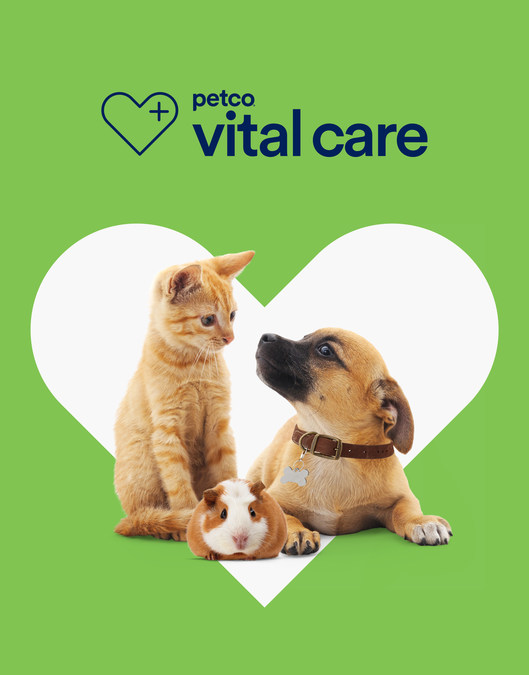Healthy And Balanced Diets and Nutrition Tips to Maintain Your Pets Delighted
Wiki Article
Recognizing Your Family Pets' Nutritional Needs for Optimal Wellness

Value of Balanced Diet Plans
Making sure a well balanced diet for pet dogs is important for their general health and wellness and well-being. Pets, like humans, need a blend of healthy proteins, carbohydrates, vitamins, fats, and minerals to keep ideal health and wellness.Integrating a selection of nutrients makes sure that pets keep a durable immune system, healthy skin, and a glossy coat. In addition, a well balanced diet can protect against a host of wellness issues such as obesity, which is connected to diabetes and joint issues, or poor nutrition, which can result in developmental delays and body organ dysfunction.
Animal owners should bear in mind part sizes and calorie consumption, as overfeeding or underfeeding can have serious repercussions. Consulting with veterinarians or pet nutritional experts can help customize diet regimens to meet specific needs, ensuring that pet dogs get the proper equilibrium of nutrients required for their age, task, and dimension level. A constant and balanced diet is crucial for a pet dog's durability and happiness.
Species-Specific Nutritional Needs
Exactly how do various species of family pets have differing nutritional demands? This question highlights the requirement for a tailored method to feeding our animal companions. Each species has one-of-a-kind metabolic paths, digestive system systems, and dietary needs that must be fulfilled for optimal wellness. Dogs are omnivores, requiring a well balanced diet of carbs, fats, and healthy proteins, while felines, as obligate carnivores, need a greater healthy protein intake obtained mainly from animal resources.Birds, relying on their types, may require a diet abundant in seeds, fruits, or pests, highlighting the diversity within the bird world. Pets. Reptiles, such as snakes and turtles, similarly need species-specific diet regimens, with some requiring high degrees of calcium and others, a well-calibrated balance of pests and plant matter
Understanding the nutritional differences among various types is critical for pet owners. By catering and acknowledging to these distinctions, we ensure the arrangement of appropriate nutrition, sustaining the total well-being and vigor of our family pets.
Age and Size Considerations
While species-specific dietary needs lay the foundation for a family pet's diet, age and size more improve these demands. Young pets, such as kittycats and pups, require diet regimens rich in calories, healthy proteins, and important nutrients to sustain quick development and advancement. These young creatures have higher metabolic rates and need even more constant feedings to maintain their energy levels and make sure correct advancement of body organs, muscles, and bones.Formulas designed for grown-up pet dogs frequently concentrate on keeping weight, advertising gastrointestinal health and wellness, and sustaining an active lifestyle. Alternatively, elderly pets might benefit from specialized diets that attend to age-related obstacles, such as joint health, cognitive feature, and body organ support.

Health Conditions and Dietary Adjustments
Specific health problems can significantly influence the dietary demands of family pets, requiring tailored dietary adjustments to support their well-being. Pets with diabetes might benefit from diet regimens that are high in fiber and low in simple carbohydrates to assist control blood sugar degrees. In a similar way, obese animals frequently require reduced-calorie diets to promote fat burning and stop involved health problems.Animals with kidney condition might require diet plans low in phosphorus and protein to alleviate kidney work. Omega-3 fats, known for their anti-inflammatory buildings, can be valuable for family pets dealing with problems like arthritis or inflammatory bowel disease. Additionally, animals with food allergies or intolerances may need hypoallergenic diet regimens, often calling for a procedure of removal to recognize and omit annoying ingredients.
Veterinary support is critical when making dietary adjustments, as inaccurate nourishment can exacerbate existing health troubles or result in brand-new ones. Regular tracking and adjustments based upon the pet's feedback to nutritional adjustments are important. A balanced approach, thinking about both medical and nutritional requirements, makes sure that nutritional interventions contribute positively to taking care of health and wellness conditions, boosting not just the family pet's wellness but also their lifestyle.
Tips for Finding Top Quality Animal Food
Selecting the best animal food is essential for guaranteeing your animal's wellness and durability. A balanced diet sustains their body immune system, maintains healthy weight and promotes overall vitality. Begin by consulting your veterinarian to recognize your pet's particular dietary demands based upon age, health and wellness, and breed standing.When reviewing family pet food, scrutinize the component listing. Top quality pet dog foods commonly list genuine meat, poultry, or fish as the primary active ingredient. Avoid products with extreme fillers like corn, soy, or spin-offs that use restricted dietary value. Try to find natural preservatives and identifiable active ingredients as opposed to man-made ones.
Look For the Organization of American Feed Control Officials (AAFCO) declaration on the product packaging. This shows the food meets established nutritional requirements. Furthermore, research study the supplier's reputation. Brands with a history of recalls or poor top quality control should be approached with caution.
Take into consideration whether your family pet would certainly gain from special formulations such as grain-free, high-protein, or limited-ingredient diet regimens. These can be advantageous for animals with allergies or specific wellness concerns. Finally, observe your animal's response to click here to find out more the food. Screen their layer condition, power degrees, and food digestion to ensure the diet regimen is efficient.
Verdict
A detailed understanding of family pets' nutritional requirements is critical for promoting their optimal well-being. By adhering to these principles, family pet proprietors can dramatically contribute to their pet dogs' development, power degrees, and overall wellness, cultivating a better and much healthier life.
Choosing the appropriate pet food is critical for ensuring your animal's health and wellness and durability. By sticking to these principles, pet dog proprietors can significantly contribute to their pets' growth, power degrees, and total wellness, cultivating a happier and healthier life.
Report this wiki page